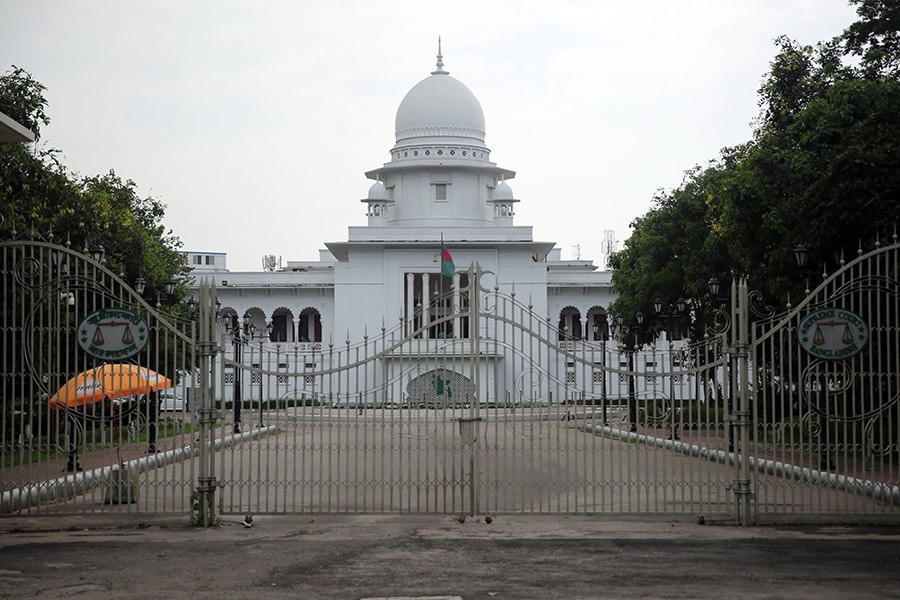
Published :
Updated :

It is urgent that the top court is empowered to conduct its business of disciplining the lower court, making appointments, transfer of the judges and do other related functions transparently and effectively without being stymied by the influence of the executive branch of the state
In a welcome development, the Chief Justice (CJ) is reported to have sent a proposal recently to the Ministry of Law, Justice and Parliamentary Affairs for setting up a separate secretariat for the judiciary. Understandably, the objective of the proposal is to ensure independence of the judiciary. It may be recalled at this point that the landmark verdict handed down on December 2, 1999 by the Appellate Division in the famous Masdar Hossain case opened the door for separating the judiciary as it established (through the verdict) that the service of the judges of the country's subordinate courts was not the same as that of the members of the civil service. Thanks to the non-cooperation of the successive governments in the past that the verdict of the Masdar Hossain case could not be implemented for realisation of the spirit of the Article 22 of the Constitution. The effort of the 2007's caretaker government, which established a separate judicial service commission by amending the Code of Criminal Procedure and enacting the Judicial Service Rules, 2007, to this end did not also see the light of day. That is because, once in power, every elected government since the 1990s conveniently forgot to make good on their pre-election promise of separating the powers of the executive and the judiciary. The experience of the past, especially of the last one and a half decade, has amply demonstrated what price a nation has to pay if the power of the executive is not counterbalanced by an independent judiciary.
However, the July-August revolution led by students with overwhelming support of the masses that ended the autocratic rule of Hasina has opened up the rare opportunity to complete the unfinished task. As things stand at the moment, the law ministry acts as the secretariat of the judiciary and hence can interfere in the affairs of recruitment, transfer and promotion of judges of the subordinate courts. Once the apex court regains its full authority, the discretionary power of high governments officials exercised before on other organs of the state would be over. To this end, the CJ's proposal sent to the law ministry does, as reported, include a concept paper that explains the necessity and objectives of a separate secretariat for the judiciary under the Supreme Court by abolishing the existing system of joint authority of the apex court and the law ministry on the matter.
Also, the need for a separate secretariat for the judiciary emerges from the development that has taken place over the years in terms of a phenomenal rise in the number of lawsuits, administrative proceedings of the apex court as well as an increase in the number of judges in the subordinate courts. Against this backdrop, it is urgent that the top court is empowered to conduct its business of disciplining the lower court, making appointments, transfer of the judges and do other related functions transparently and effectively without being stymied by the influence of the executive branch of the state. This is also the basic condition for democracy to take hold in a modern state where the rule of law and constitutional obligations matter.
Now that the apex court has done its part by way of providing the necessary roadmap for making the judiciary truly independent, it is up to the law ministry to do its bit by vesting it (the apex court) with the necessary authority to that end.


 For all latest news, follow The Financial Express Google News channel.
For all latest news, follow The Financial Express Google News channel.